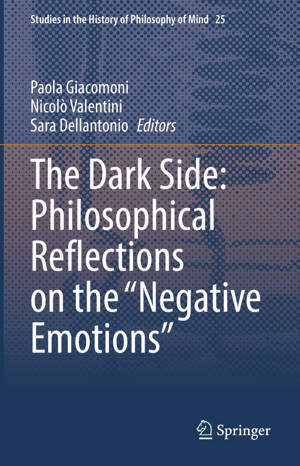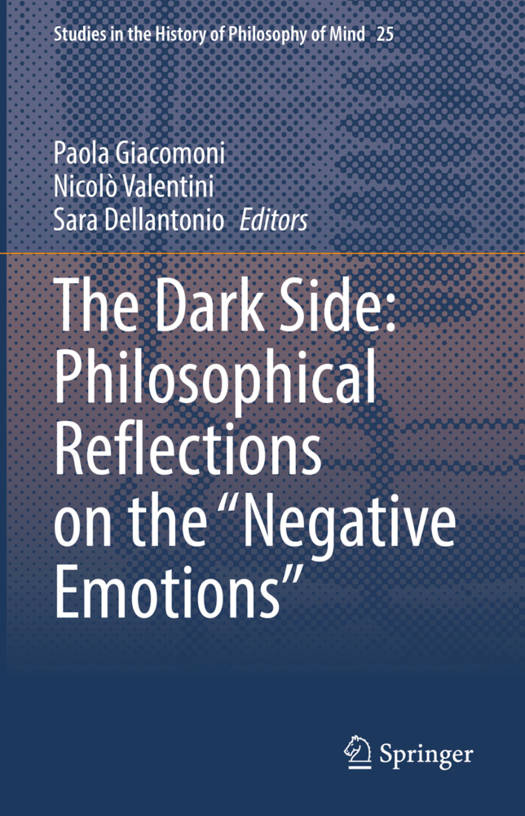
- Afhalen na 1 uur in een winkel met voorraad
- Gratis thuislevering in België vanaf € 30
- Ruim aanbod met 7 miljoen producten
- Afhalen na 1 uur in een winkel met voorraad
- Gratis thuislevering in België vanaf € 30
- Ruim aanbod met 7 miljoen producten
The Dark Side: Philosophical Reflections on the "Negative Emotions"
Omschrijving
This book takes the reader on a philosophical quest to understand the dark side of emotions. The chapters are devoted to the analysis of negative emotions and are organized in a historical manner, spanning the period from ancient Greece to the present time. Each chapter addresses analytical questions about specific emotions generally considered to be unfavorable and classified as negative.
The general aim of the volume is to describe the polymorphous and context-sensitive nature of negative emotions as well as changes in the ways people have interpreted these emotions across different epochs. The editors speak of 'the dark side of the emotions' because their goal is to capture the ambivalent - unstable and shadowy - aspects of emotions.
A number of studies have taken the categorial distinction between positive and negative emotions for granted, suggesting that negative emotions are especially significant for our psychological experience because they signal difficult situations. For this reason, the editors stress the importance of raising analytical questions about the valence of particular emotions and focussing on the features that make these emotions ambivalent: how - despite their negativity - such emotions may turn out to be positive. This opens up a perspective in which each emotion can be understood as a complex interlacing of negative and positive properties.
The collection presents a thoughtful dialogue between philosophy and contemporary scientific research. It offers the reader insight by illuminating the dark side of the emotions.
Specificaties
Betrokkenen
- Uitgeverij:
Inhoud
- Aantal bladzijden:
- 260
- Taal:
- Engels
- Reeks:
- Reeksnummer:
- nr. 25
Eigenschappen
- Productcode (EAN):
- 9783030551223
- Verschijningsdatum:
- 3/04/2021
- Uitvoering:
- Hardcover
- Formaat:
- Genaaid
- Afmetingen:
- 156 mm x 234 mm
- Gewicht:
- 553 g

Alleen bij Standaard Boekhandel
Beoordelingen
We publiceren alleen reviews die voldoen aan de voorwaarden voor reviews. Bekijk onze voorwaarden voor reviews.










